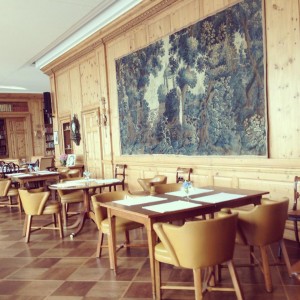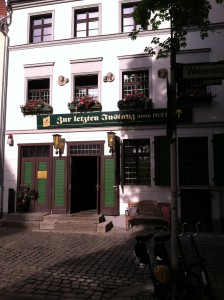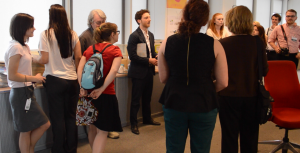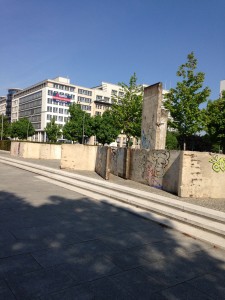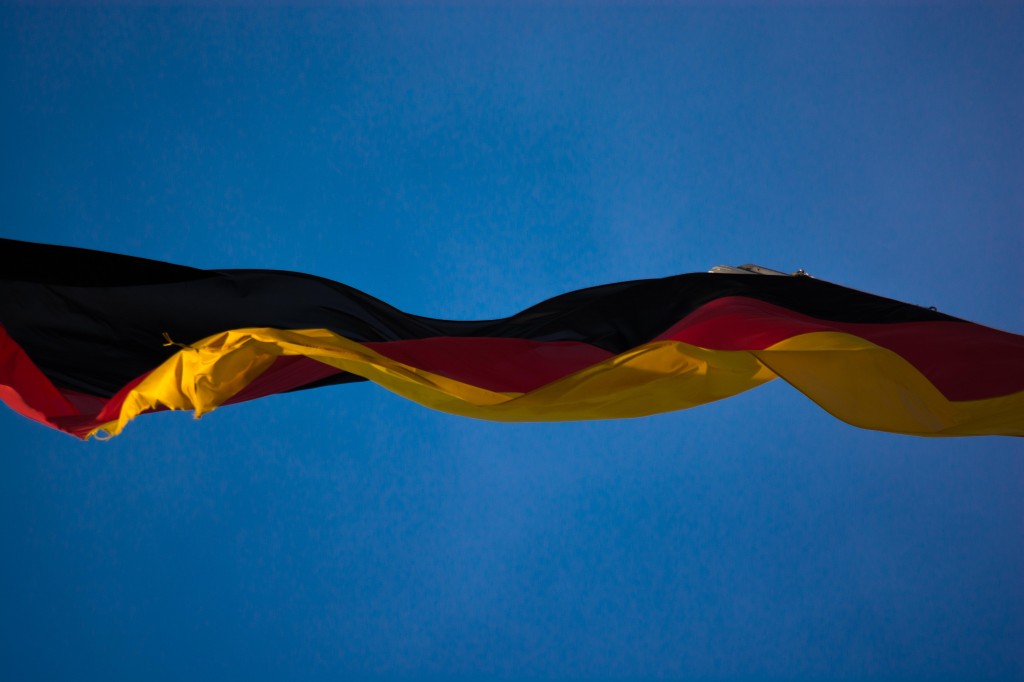5-17-13
Wake up call was at 4:30 this morning to head to Munich. The plane ride was uneventful (thank god), and I was able to sleep through the entire trip. Once in Munich, we took a brief tour of the city and saw a few monuments, then checked in at our hotel. We took another mini tour on our walk to lunch, visiting a few churches, including the one where Pope Benedict XVI was bishop.
Munich is more like the Germany that a lot of Americans imagine, I think. Although 85% of it was destroyed in World War II, according to our guide, it still has an old-timey look to it. As opposed to Berlin, which is very modern. I look forward to exploring this city more…and to dinner tonight, which will be at the self-proclaimed originator of the white sausage!
